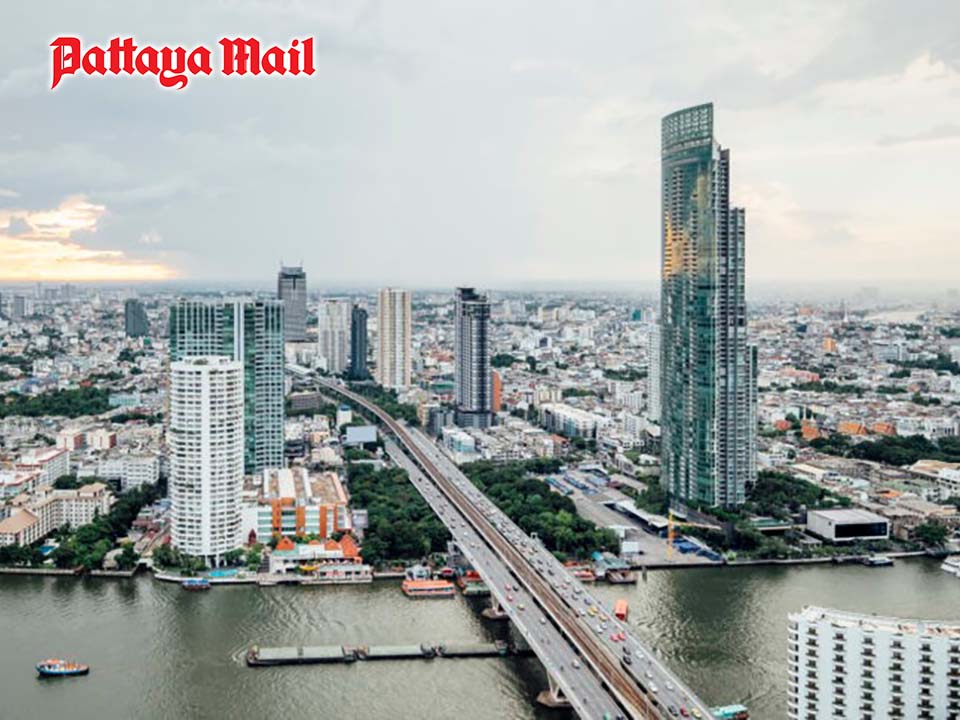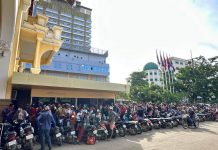
PATTAYA, Thailand – As of mid-2025, Pattaya and the broader Eastern Economic Corridor (EEC) region—once the darlings of Thailand’s real estate boom—are experiencing a profound market slowdown, driven by a complex interplay of economic, geopolitical, and environmental factors.
Market Slowdown and Fire Sales in EEC
According to Wasan Kongchan, Vice President of the Real Estate Sales and Marketing Association, the Thai real estate market is facing a severe slump. This has resulted in developers pausing land acquisitions and shelving new projects. The slowdown is especially pronounced in the EEC zones like Pluak Daeng and Phatthana Nikhom in Rayong province, where prices had previously surged to 2–3 million baht per rai from 1 million baht, fueled by speculative EEC-driven investment.
However, this momentum has now hit a wall. Developers and landowners are scrambling to offload properties to maintain liquidity. Some land plots in strategic zones are seeing price drops of up to 50%, especially where buyers expect a two-year lead time before projects become viable. Land that once commanded 300,000 baht per square wah in Bangkok’s Thaphra area is now being offered at 150,000 baht—or even lower.
This dramatic pullback stems from a “perfect storm” of pressures: a sluggish domestic economy, delayed infrastructure payoffs, investor nervousness over regional earthquakes, and geopolitical tensions such as the “Trump Tariffs”, which have directly impacted sentiment in the EEC. The once-vibrant land trading market in the EEC has virtually stalled, with buyers sidelined and developers scaling back or selling off speculative acquisitions.
Pattaya: From Hotspot to Holding Pattern
Pattaya, long a favorite for foreign investors and domestic developers alike, is not immune. While it remains a tourism stronghold, real estate activity has cooled considerably compared to previous years. Several factors are contributing to this:
Buyers’ Market: A growing number of owners—including large-scale developers—are looking to sell off assets, leading to a saturated market.
Cautious Investors: Concerns over structural integrity due to recent earthquakes, combined with the broader economic malaise, have made buyers extremely price-sensitive. Negotiations now heavily favor buyers, many of whom are waiting for fire-sale prices.
Reduced Project Launches: New condo projects have slowed down significantly, with many developers shifting focus or exiting Pattaya entirely.
Exceptions: Phuket Still Booming
In stark contrast, Phuket’s real estate market is experiencing a mini-boom. Thanks to a strong rebound in tourism and growing interest from foreign nationals—especially from China, Taiwan, Myanmar, Japan, and Vietnam—Phuket is seeing a surge in hotel and residential acquisitions.
In Q1/2025 alone, over 45 new projects were launched in Phuket with a total investment of 49.16 billion baht. The demand is mostly for second homes or income-generating properties, particularly among foreign buyers looking to secure assets in a globally recognized destination. While the supply pipeline may slightly ease to 8,000–10,000 new units in 2025, this follows a flood of over 20,000 units launched in the past two years—indicating robust market momentum.
Notably, while the EEC is seeing halted transactions, Phuket’s land prices are steadily climbing, defying the broader market downturn.
Hotel Sell-offs Signal Stress
Interestingly, the downturn is not limited to residential properties. Many developers who had diversified into hospitality are now liquidating hotel assets—especially in Bangkok’s Sukhumvit area—to maintain cash flow. Foreign investors, particularly from Europe, are eyeing 5-star hotels, while Asian investors prefer 3-star properties with 200–300 rooms that can be upgraded to luxury standards.
Warehouse Sector Also Feels the Squeeze
Some developers who had pivoted to warehouse projects during the pandemic are now offering those projects for sale, reflecting their inability to maintain operations under the current economic climate.
The real estate outlook for Pattaya and the Eastern Seaboard is highly cautious. While Phuket continues to thrive on the back of tourism and foreign capital, the EEC and Pattaya are stuck in a limbo—paralyzed by excess supply, declining demand, and macroeconomic uncertainty. The days of easy gains are over, and a correction is underway. Only those with strong financial reserves and long-term visions are likely to weather the storm.
“Phuket, in contrast, is emerging as the lone bright spot in Thailand’s real estate landscape. As Athip Phichanon, Honorary President of the Housing Business Association, explained, Phuket continues to see strong residential demand, especially from foreign buyers seeking second homes. Its stature as a global tourist hub—now often compared to Hawaii and Dubai—has encouraged developers to aggressively meet the demand.
For prospective buyers, however, this may be the moment they’ve been waiting for. With prices dipping sharply and sellers under pressure, opportunities abound—but only for those ready to navigate a market where uncertainty still reigns.










